Just One More Thing, Doc

Further Farmyard Adventures
of a
Maine Veterinarian
Bradford B. Brown, DVM

T ILBURY H OUSE , P UBLISHERS
2 Mechanic Street
Gardiner, Maine 04345
800-582-1899 www.tilburyhouse.com
First paperback edition: April 2007
10 9 8 7 6 5 4 3 2 1
Ebook edition: May 2013; ISBN 978-0-88448-348-9
Copyright 2007 by Bradford B. Brown, DVM
All Rights Reserved. No part of this publication may be reproduced or transmitted in any form or by any means, electronic or mechanical, including photocopy, recording, or any information storage or retrieval system, without permission in writing from the publisher.
Library of Congress Cataloging-in-Publication Data
Brown, Bradford B., 1929
Just one more thing, doc : further farmyard adventures of a Maine veterinarian / Bradford B. Brown. -- 1st pbk. ed.
p. cm.
ISBN 978-0-88448-289-5 (pbk. : alk. paper)
1. Brown, Bradford B., 1929- 2. Veterinarians--Maine--Biography. 3. Domestic animals--Maine--Anecdotes. 4. Veterinary medicine--Maine--Anecdotes. I. Title.
SF613.B76A3 2007
636.089092--dc22
[B]
2006039277
Cover photograph by Luli Emmons
Text designed on Crummett Mountain by Edith Allard, Somerville, Maine
Copyediting by Genie Dailey, Fine Points, Jefferson, Maine
Text printed and bound by Maple Vail, Kirkwood, New York
Covers printed by the John P. Pow Company, South Boston, Massachusetts
Contents
Introduction
This book is a continuation of my barnyard adventures as a veterinarian in Belfast, Maine, and for many miles around in all directions.
Every now and then a farmer would say, Hey, Doc, can Junior ride around with you for a week or two or a month and become a veterinarian?
And I would say, It takes a little longer than that.
What do you mean? How long would it take, Doc?
I liked to answer, Well, last week I couldnt spell veterinarian and now I are one.
But in seriousness, it takes six to eight years of college, which always surprised them. It also took patience, a strong desire to succeed, good marks and academic excellence, and good recommendations.
I didnt get into vet school via the excellent grades that you need today. Rather, I had some good grades and some average grades, plenty of determination and perseverance, plus a strong farm background, which all served to impress the vet school admissions committee. I also told them I would probably go into large-animal medicine. At that time such intentions were rare, since the pet-care industry was booming and a lot more profitable. The easier money is in Whiskers and Fido.
When I started college there was no formal pre-veterinary program at the University of Maine, as there is today at most state universities. So I chose to enroll in General Agriculture, since it would give me the chance to take the most elective courses and still include the core subjects I would need for medical school. I took history, psychology, technical writing, botany, agronomy, entomology, and a lot of courses in animal husbandry, poultry husbandry, etc. I always carried more courses than were required, and I cant remember not running to classes or labs. It was the most enjoyable and mentally rewarding four years of my life.
I was used to hard work, and I continued working throughout college. The summer after I graduated from high school I went to work for the railroad as a section hand. We put in new ties under the rails and took out the old ones, which was harder than putting in the new ones. Then I would go home and bale hay until dark on the farm. The next summer I stayed on the farm and raised dry beans for college money. And so it went. During the school year I usually held two or three menial jobs like sweeping the gym floor, working in the laboratories, or working in the ag school dairy bottling and delivering milk, since the ag school had a lot of dairy cattle. I was usually desperate for money, but I was determined to get through college and then vet school.
After vet school at Cornell, I went into practice with my brothers Phil and Neal, also veterinarians, in Belfast, Maine. Neal soon left the practice to pursue a Ph.D. in pharmacology, Phil and I worked together for twelve years, and then I took over the practice.
My small-animal practice ended up supporting my large-animal work, which took place usually after Id already put in a full day at the clinic. An office call was only four dollars, but I was busy enough so that it added up. Farm calls were a dollar a mile one way, with a minimum of four dollars a call. Once one farmer had paid the mileage cost, his neighbors would want me to stop by, too, because of the savings, and one call could easily turn into five, six, or more. I would charge a dollar or two extra for while-youre-here things like castrations and opening a cows hard-milking teat. I also had to charge for medicines, of course, but I would cut the price of the medicine in half or discount it significantly for poor clients.
Many times I exchanged my work for goods and services, mostly goods. People were always giving me eggs, potatoes, corn, cucumbers, and tomatoes, but I also ended up owning just about every ceramic configuration made.
I hear a lot of complaints these days about vet fees. Consider this: a veterinarian must buy or build a veterinary hospital and equip it the same as a human hospital, since it must handle the same situations. A vet has to provide a complete surgery with all the instruments, anesthetic machines, and other equipment that surgery entails; you must have an EKG machine, x-ray equipment, ultrasounds machines, and a good laboratory. Plus you need to have an efficient office for the paperwork. When you add that all up nowadays, its often an investment in the millions.
Its probably safe to say that at one point I may have had the largest mixed-animal practice being handled solo anywhere along the coast of New England. When one of my friends asked me how long Id practiced veterinary medicine, I said twenty-three years.
But another friend piped up, Brad, thats not true. You worked so hard you probably put two years of work into every one, so Id say you practiced forty-six years, at least.
What follows are some of those long, long days, when I never knew what Just one more thing, Doc might bring.
Bradford B. Brown
Vassalboro, Maine

1


Half-Done, Twice Over
I was called to examine a sick cow at the Boyce farm in the ridge-top community of Knox. As usual, it wasnt just one cow. After treating five additional cows for various minor ailments, I cleaned up and prepared myself for the next farm call. As I was backing out of the driveway, George Boyce knocked on the car window. I made the mistake of rolling it down.
Hey, Doc, I forgot to tell ya. While youre here I wanted you to dehorn that damn bull. Killers five years old now and hes getting real snorty. Hes out in the old chicken house.

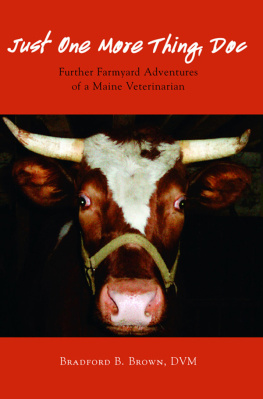
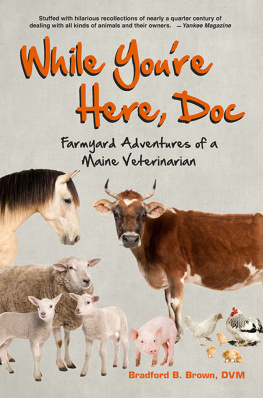





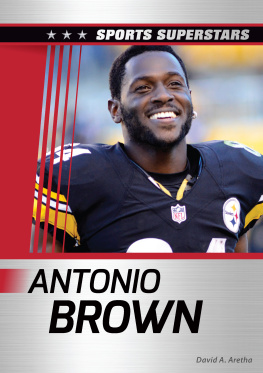
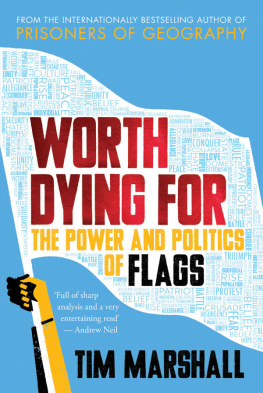
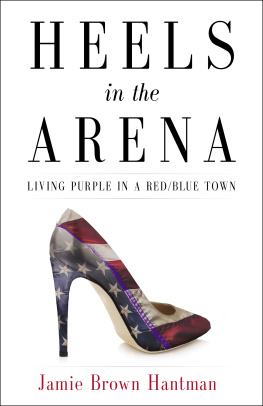
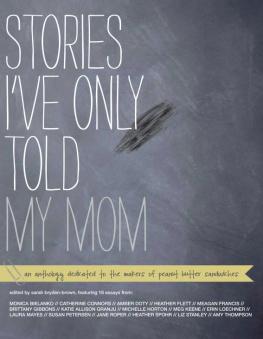


 1
1 
